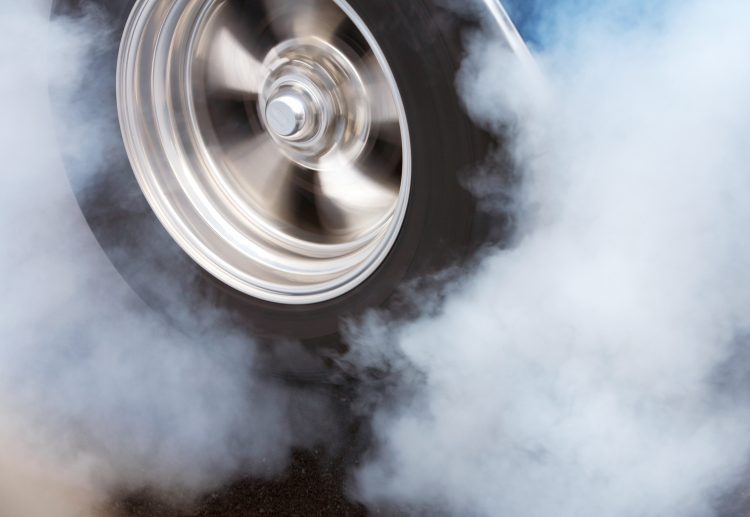Burnout; The Biggest Threat To Patient Care And Physician Welfare
Have you ever reached a point where you find that you’ve become indifferent about your career or academic endeavours and that the people around you constantly comment that you don’t seem like yourself? Have you also noticed that most of the time, you’re just going through the motions?
Chances are, you’re experiencing the symptoms of burnout.
Much like with any other disorder, the symptoms vary and are often tailor made to each individual and their respective occupations. Whilst in fast-paced, all-encompassing degrees or jobs, individuals might find themselves strung out and consistently overwhelmed, in fields where repetitive monotony is an integral part of the job description, burnout can manifest itself into apathy and an overwhelming urge to gouge one’s own eye out with a pencil. I, myself, have experienced this inclination when attempting to understand a challenging concept or complete a dull assessment.
Many believe that in certain professions and systems of education, burnout is inevitable. This is especially true for opinions regarding the medical profession and all the associated education and training systems that are in place to mold the future white coat-wearing heroes. In fact, studies1 have shown that up to 45% of medical students and up to a staggering 75% of residents have reported experiencing the effects of burnout. Whether they experience apathy or overwhelm, it is likely that the characteristics that are considered of crucial importance in the medical profession are compromised as a result.
As someone who has experienced the medical world from the perspective of the patient and the patient’s family, I have often found myself questioning the ability of certain medical professionals. This was especially true several years ago when my father passed away in hospital. My father’s passing was a shock to our family and I felt the way his doctors handled the delivery of the news and dealt with the grieving of a mourning family left something to be desired.
It wasn’t fair.
During what we were told was a fairly routine anesthetized procedure, my father suffered a cardiac arrest. The doctors came out to a family that only hours before had been told that their loved one was likely going to be fine and without any further explanation or expressions of condolences recited the usual, run of the mill delivery you’d expect to see in a medical soap opera.
At the time, my emotions ranged from utter despair to confused rage; at what exactly, I wasn’t entirely sure. Part of what contributed to the dizzying array of emotions was what I believed at the time to be a complete lack of empathy and explanation from the doctors. I didn’t expect them to be a shrieking mess on the floor, but I wanted more; I wanted them to express that they knew that that experience was the hardest thing that we’d ever had to endure. I wanted to know how and why this seemingly harmless test had gone so horribly wrong and if there was anything at all that could have been done differently.
Over the last several years, in my quest for a place in medical school, I have learned and experienced some of the pressure that is placed on medical professionals. I understand now that what I perceived as a doctor who lacked empathy and consideration was probably a doctor that had not had a break in more than 15 years. He probably hadn’t expected his life, which he had chosen to dedicate to the service of others, would turn out to be so unrewarding and challenging on an almost daily basis. I don’t completely understand how he must have been feeling but I appreciate now how difficult his job and all the grueling years of training leading up to that moment were. While I may begin to understand the pressure of the profession, I don’t believe the lack of closure that he left behind was acceptable, despite his apparent burnout.
For some, this burnout that is often perceived as weakness or just an overall lack of empathy and motivation can be catastrophic to the individual it unwantedly burdens.
No one is immune.
Over the weekend, a renowned Sydney medical specialist, Richard Hope, took his life, according to a source. A doctor that seemingly had it all – a stellar career and an impressive reputation – was overrun by the stresses that are commonplace in the medical profession. The success that he undoubtedly strived tirelessly to achieve was not enough to alleviate the overwhelming pressure.
This issue of physician burnout however, is not an issue exclusive to Australia. Dr. Zainab Shirazi, an Iraqi-born, Sydney-based General Practitioner, when asked about her experiences with physician burnout, recounted stories of a number of her colleagues succumbing to the pressure of medical training and hospital work and taking their own lives by means of self-administered potassium injections. She then explained that to deal with the stresses and pressures that come with the job, she limits appointments on certain days and takes time off when it all becomes a little too much.
“It’s not fair for me and it’s not fair for my patients”, Dr Shirazi states, clarifying that she does not compromise her own health and in doing so, ensures that all of her patients receive 100% of her attention and quality medical help. She advises that for individuals in any profession struggling with overwhelm and burnout, time should be taken off whenever possible and professional help should be sought.
Whilst I don’t believe it is acceptable for medical professionals to lack empathy and consideration when dealing with patients, I believe it is also crucial that awareness be spread about physician burnout and that protocols be implemented where doctors and training physicians should have continuous access to counseling and other measures to help alleviate stress that accompanies the job.
If you or anyone you know is experiencing anxiety, depression or suicidal thoughts, please know there is help and you are not alone. Contact any of the below helplines or see your healthcare professional;
• Lifeline; call on 13 11 14 or visit online at www.lifeline.org.au
• Beyond Blue; call on 1300 22 4636 or visit online at www.beyondblue.org.au
• Headspace; call on 1800 650 890 or visit online at www.headspace.org.au
Reference
1. Montgomery, A. (2014). The inevitability of physician burnout: Implications for interventions. Burnout Research 1(1): 50-56.






